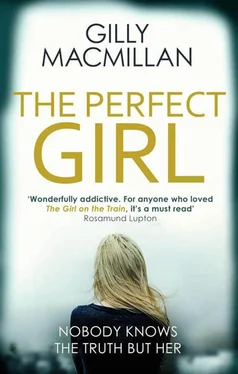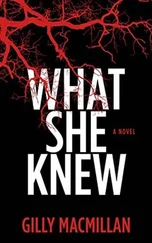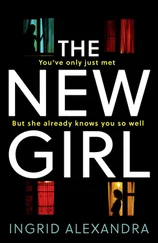I’m so close to Lucas that I examine his face almost forensically, wanting to understand every line and curve of it. I look at every pore, I see the arc of his damp, clotted eyelashes and I recognise that the smell of him is the same one that hung in the air of the Unit sometimes.
It’s the smell of fear.
‘He hurt your mum too.’
‘Yes.’
‘Did he kill her?’
‘No.’
‘But she died because of him?’
‘She killed herself because he made her feel useless.’
I know that feeling; it inhabits every cell in my body.
‘But she was dying anyway?’
‘She never fought the disease. She might have fought it if her life wasn’t so shit. She had no reason to want to live. I told you that.’
I put my finger to Lucas’s mouth. ‘Shh,’ I say.
I don’t say, ‘But she had you,’ because sometimes I understand that it’s best to keep things to yourself when they are a hundred per cent guaranteed to hurt others.
His breath smells sour, but it doesn’t gross me out. I realise that I love the way that only I can see into his soul. Lucas has been carrying a secret around with him, just like I have, and that’s a powerful thought. It makes my heart begin to beat a little faster.
I press my cheek against his where the wetness of his tears seals us together, and then I rest my head on his shoulder while he cries, and cries again, like his sadness is never going to end, and all the time my mind is working, and my thoughts are becoming very, very clear.
Then he says, ‘I filmed it on my phone. I filmed him hurting her when I opened the bedroom door, because I was going to show you what he’s like.’
‘Is it still on your phone?’
The police will find it there, surely, if it is.
‘I deleted it at the same time as the script.’
It might take them a little bit longer, but they’ll still find it. The thing is, I want to act quickly.
‘But I uploaded it,’ he adds, ‘before I deleted it. In case I had to prove that I was trying to help her, because Dad was hurting her.’
He describes the film to me and, as he does, my thoughts crystallise. Perfectly.
I take Lucas’s hands in mine, once again, and I take a deep breath.
Then I say to him, ‘I forgive you,’ because those are the words that I’ve always wanted to hear. I give them to him right here and now, because I know, even if he doesn’t yet, that they’re the greatest gift that I can give him, and I just hope that they’re enough.
For, you see, I’ve suddenly understood something even more important than knowing what Lucas did to my mother; I’ve understood that Lucas is my only chance of keeping Grace.
Because otherwise Chris will have her.
And he will hurt her.
I know it in my bones.
The consultant says, ‘I believe you’ve had a conversation with your GP about what to expect today?’
‘I have.’
‘As we suspected there might be, there are lesions visible in your scan. They’re in both the brain, and the spine.’
He swings the computer monitor around towards me, and I see an image of my skull.
‘This shows you a slice of your brain,’ he says, ‘as if we were looking at it from the top of your head down towards your feet,’ and with my pen he points at several different areas on the screen. ‘There are lesions visible there, there, and there’s one more, which you can probably see here.’ He’s pointing out small smudges, which are pale grey and look distinct from the rest of the scan, as if somebody had left several small, dirty fingerprints on the inside of my head.
‘For me,’ he continues, ‘taken in conjunction with the rest of your symptoms, this goes significantly further to suggest a diagnosis of multiple sclerosis, but I would like to do a lumbar puncture to confirm it. Do you know what that is?’
I struggle for a second to find words because my throat has gone dry. ‘Taking fluid from your spine,’ I say.
‘And we do that because we’re looking for things called myelin proteins. If we find them, then your diagnosis will be confirmed. If we don’t, it won’t unfortunately mean that you don’t have the condition, just that there were no proteins in the sample, so we might need to repeat the test. But based on this scan, I think it would be sensible to prepare yourself for an MS diagnosis.’
He starts tapping on his computer again.
‘I think the best thing to do now might be to discuss how we can alleviate the symptoms you’re having. Can you describe them for me?’
An hour and a half later, after a long wait at the hospital pharmacy, I leave the building holding a bag of medication and an appointment card for a lumbar puncture for the following week, as well as the contact details of the hospital’s specialist MS nurse who I’ve just met.
Out on the baking hot streets, I feel affronted by the bright glare of the sun, the way it glints off car bonnets and roofs and the windows of the surrounding buildings.
I’m told the medication should ease the symptoms of numbness and joint pain soon, and I’ll be grateful for that because it makes me feel vulnerable when I’m out, especially in crowded situations, and it’s becoming increasingly difficult to hide it from others.
I knew the diagnosis was likely, and, though it’s not confirmed, I don’t think the doctor would be advising me to prepare myself if he wasn’t certain.
Even standing in the shade, I feel overwhelmed by the heat, and by the momentous news I’ve just received. I take my phone out. Tess hasn’t called me back yet.
‘Sorry,’ I say to her even though she can’t hear me, and I turn the ringtone to silent.
I approach one of the taxis that are waiting outside the hospital and ask the driver to take me home. I don’t answer any of his chatty questions and, in the silence that I’ve imposed, I see him glancing in the rear-view mirror, wondering what’s just happened to me.
At home, in the empty flat, I wish more than anything that I had somebody who would come home to me tonight, somebody I could tell, somebody who would be with me through it, to the end.
When your world explodes all the pieces of it shatter and spread, and you don’t see some of them ever again, and nothing is ever like it was before.
I lost the world I had before the accident and my mum helped me to build a new one. Now that world has gone too, and I will never see my mum again, but I don’t want to lose all the other bits.
Before I left the Unit, Jason taught me one last thing. We’d just finished our final session, two days before my release, and I asked him why all of us kids were locked up like animals when what some of us had done was just a mistake, or unavoidable, because we were stupid, or young, or had other excusable reasons for what we did like a witness who lied and a judge who didn’t believe the truth when he heard it.
‘Punishment is considered an effective deterrent,’ Jason replied and he adjusted the neckline of his ‘Bowling for Soup’ T-shirt, which was a gesture he always made when he was feeling awkward.
‘That’s the theory anyway,’ he added. ‘Look, it’s an imperfect system, and we know it is, but that’s why these sessions are important, because they’re when you get a chance to unpick what happened to you and understand the reasons for it, so that we can try to find a way forward.’
‘I told the truth at my trial and they put me in jail anyway,’ I said.
‘Well, as I said, it’s imperfect, but you know kids didn’t even used to get therapeutic sessions at all, so you’re lucky in that sense.’
The clock high up on the wall told both of us that our time was up. As a way to end our last ever session, it felt like a damp squib, because he’d said this stuff to me loads of times before.
Читать дальше












